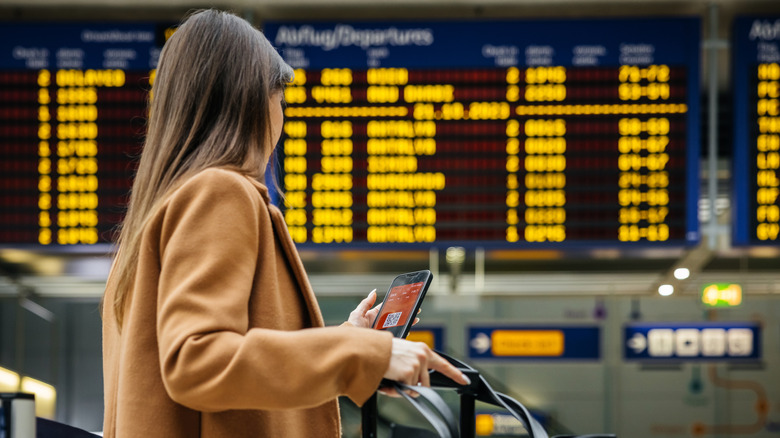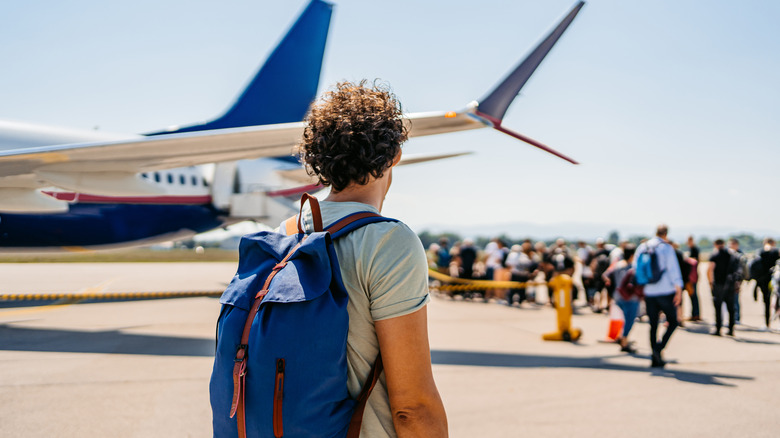This Western Airport Has The Most Safety Incidents In America, According To The FAA
The U.S. aviation system may be the safest in the world, but January's fatal crash in Washington D.C., killing 67 people, made this the deadliest year for airlines in the country. This year's stories of planes catching fire, losing doors, and sliding off runways also amplified anxiety among passengers. Now, a memo from the Federal Aviation Administration, obtained by a resident's Freedom of Information Request, reports that the Rocky Mountain Metropolitan Airport (RMMA) in Broomfield, Colorado leads the country in the number of "Potentially Significant Events," or PSEs — referencing safety issues both on the runway and in the air. Though the memo didn't say how many incidents it had, RMMA eclipses nearly 20,000 airports nationwide that are part of the National Airspace System (NAS), including larger airports, such as nearby Denver International Airport, known as the nation's most turbulent airport.
The memo came out weeks after a plane taking off from RMMA crashed, killing both passengers on board. RMMA was also the subject of a lawsuit brought by residents living below its flight path in Superior over noise issues. The suit was dismissed this year. Known as a public-use airport, one which doesn't require permission for landing and doesn't handle commercial airlines, its proximity to Denver's airport, just 15 miles away, and the ski resorts of the Rocky Mountains, considered the best in the country, make it an attractive option for private jets, flight schools, and corporate flight departments. Data shows it brought in $730 million in business in 2020.
Is it still safe to fly?
In the wake of the memo, the FAA said it has adjusted flight paths and other operating procedures to enhance "air traffic safety and efficiency." In addition, RMMA is exploring alternative revenue streams for its 1,000 acre property, including a new 100-acre business park.
For travelers who are wondering if it's safe to fly these days, especially with news that the FAA's staff of 46,000 is due to shrink by 4.5% when President Trump's deferred resignations take effect this month, experts say it is. Statistics show that flying is safer than driving a car and overall safety has improved in the last two decades. Accidents have plummeted from one in every 456,000 flights from 2011 to 2015 to one for every 810,000 today.
The fear of flying, whether it manifests in nausea, sweating, or panic attacks, is real, impacting 20% of the population, according to the Anxiety and Depression Association of America. So, if the numbers don't convince you, then maybe the best approach to feeling safe in the air is to mitigate your nerves. Avoid flying at the world's busiest airport. Invest in quality noise-cancelling headphones. And, it doesn't hurt to take ownership of the situation. With staffing levels falling in the aviation industry and threats of government shutdowns, make your voice heard and write to your local congressional officials demanding more funding, and complain to the FAA and Department of Transportation.

